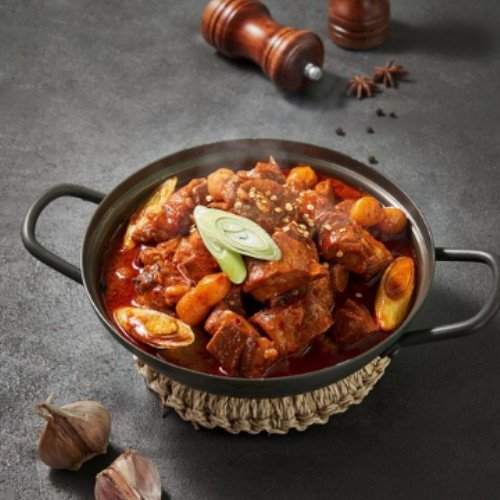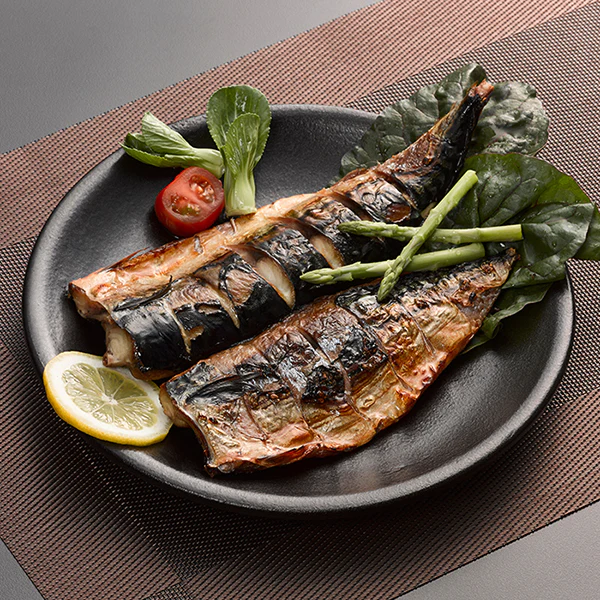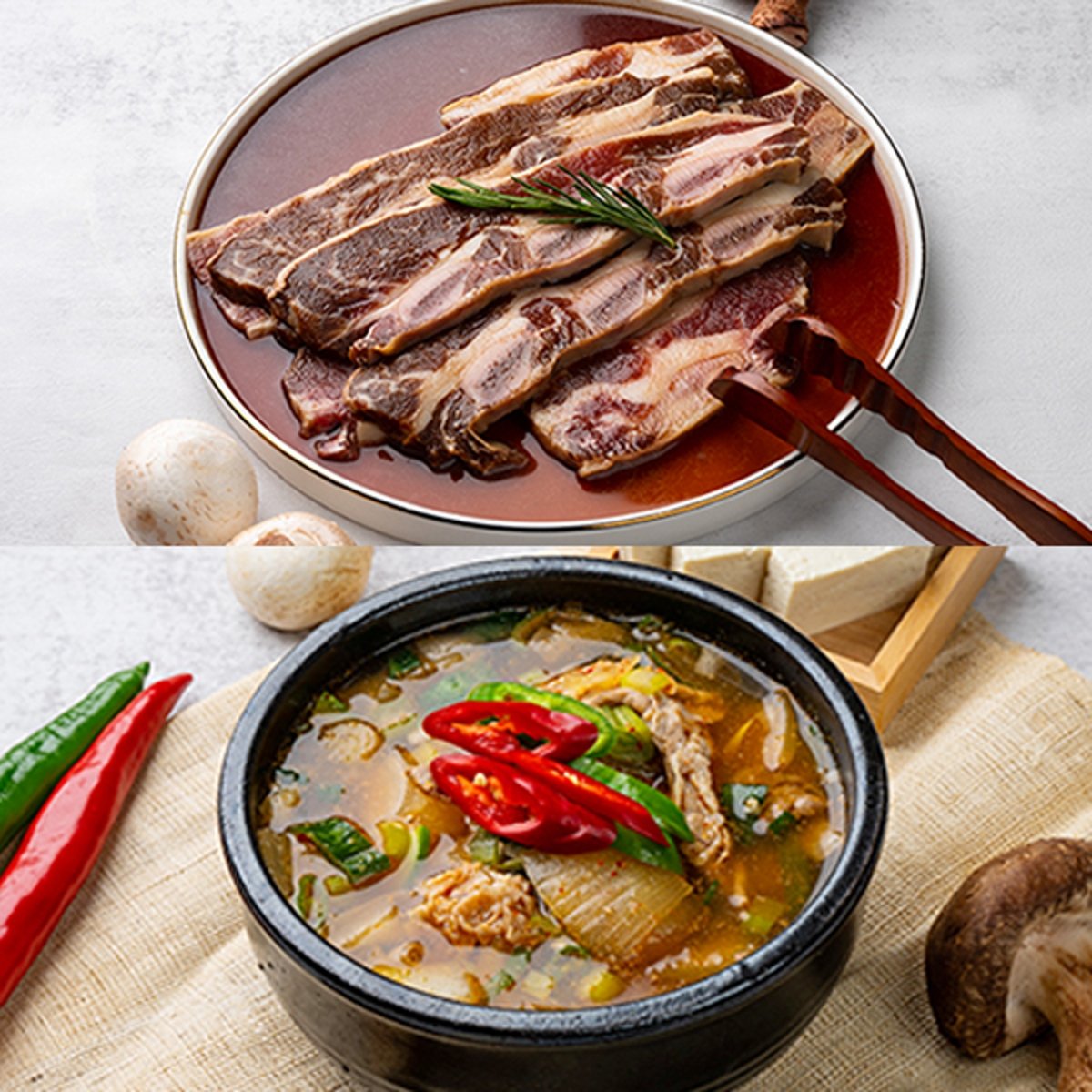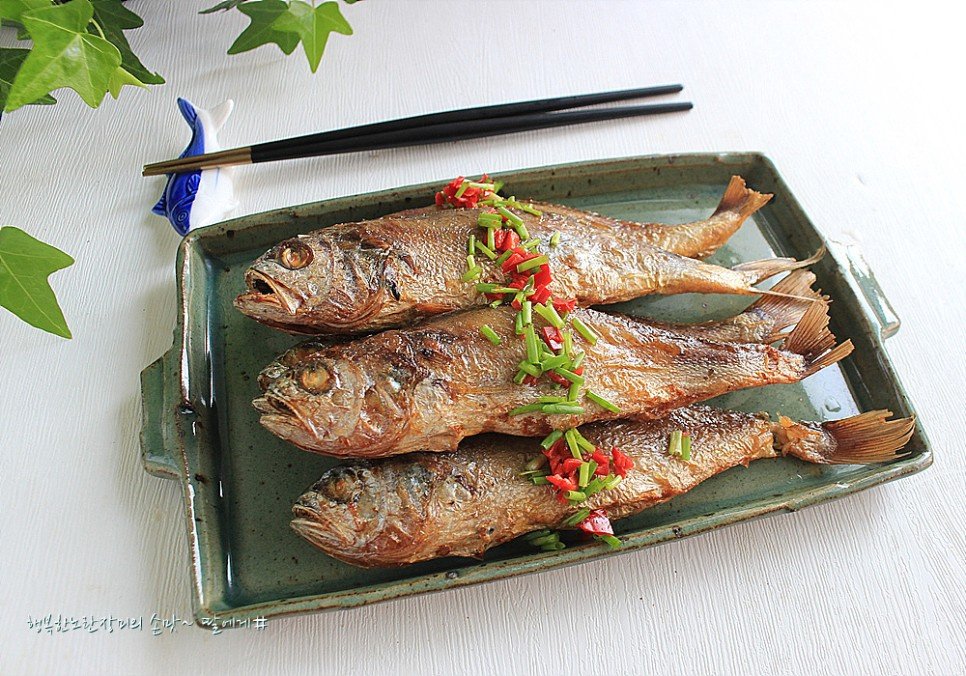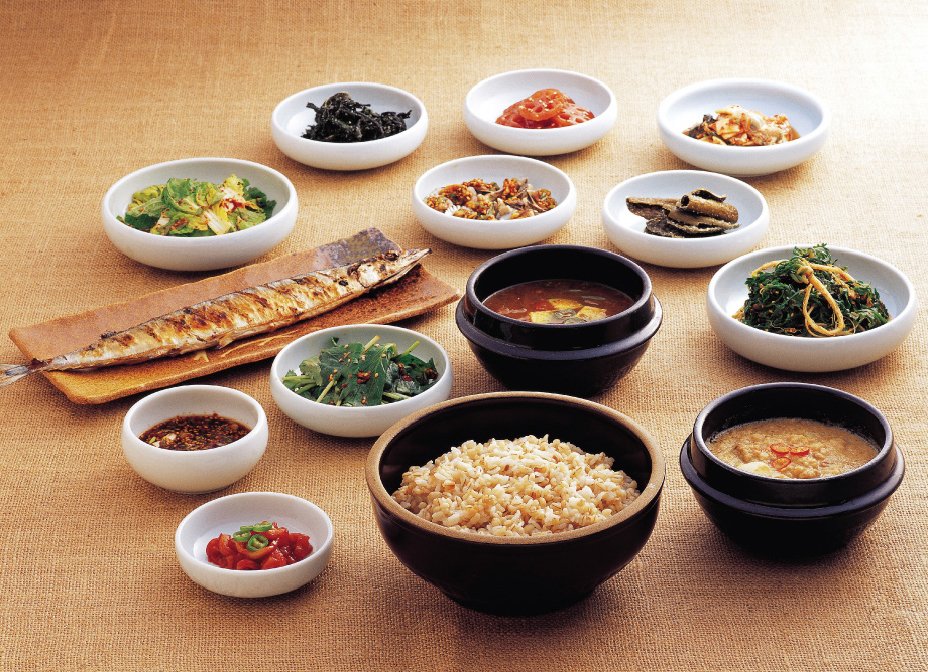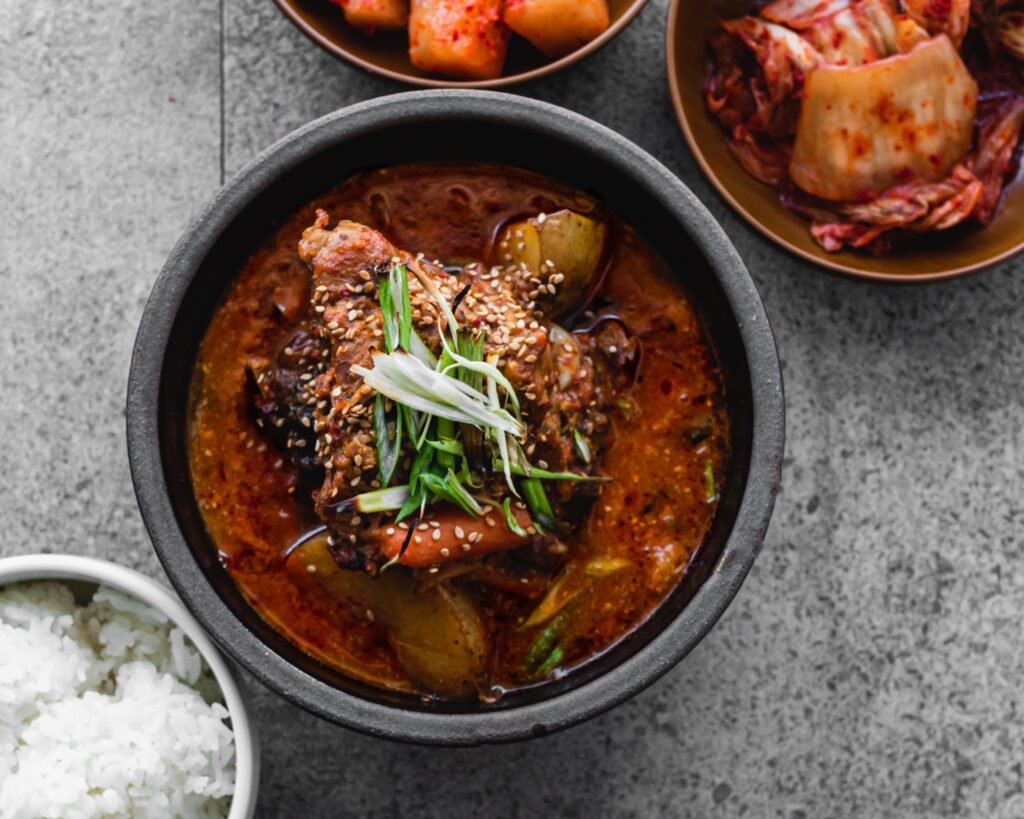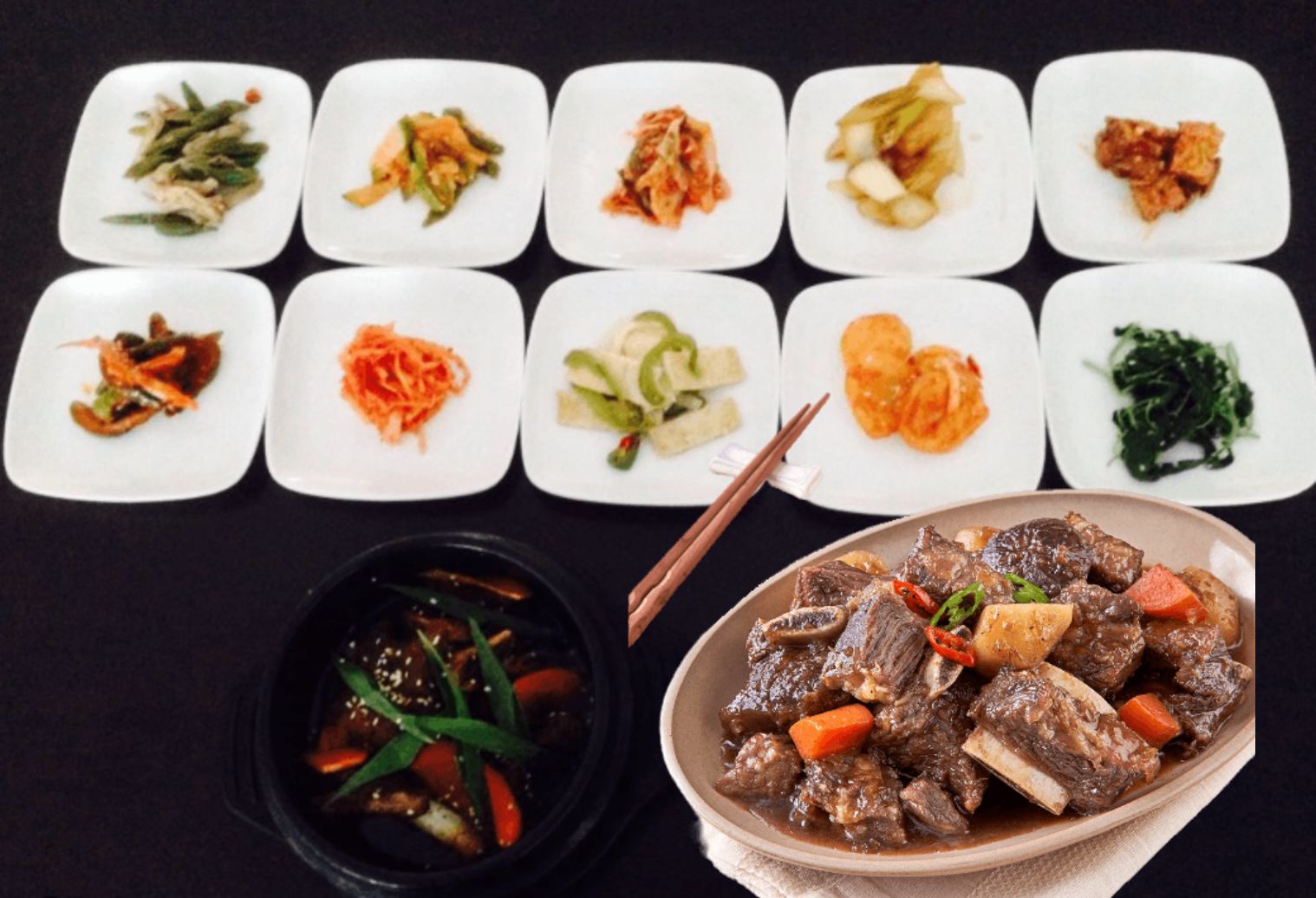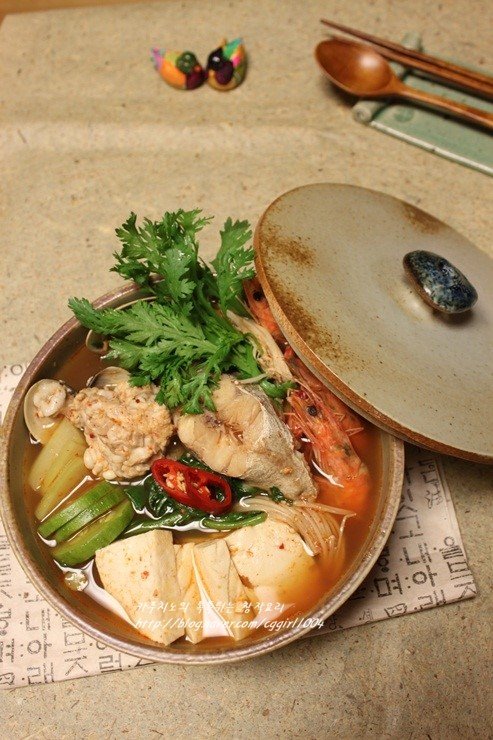매운돼지 갈비찜 Maeun Dwaeji Galbi Jjim
매운돼지 갈비찜
매운돼지 갈비찜, also known as Spicy Pork Galbi-jjim, is a popular Korean dish that combines tender pork ribs with a spicy and flavorful sauce. It belongs to the category of jjim, a traditional Korean cooking method that involves slow-cooking ingredients in a seasoned broth or sauce.
The dish starts with pork ribs, specifically the meaty and bone-in cuts, which are the key ingredient. The ribs are marinated in a mixture of ingredients such as gochujang (Korean red chili paste), gochugaru (Korean red chili flakes), soy sauce, garlic, ginger, sugar, and other seasonings. The marinade is usually left to infuse the meat for a few hours, allowing the flavors to penetrate and tenderize the pork.
After marinating, the ribs are typically braised or stewed with various vegetables such as onions, carrots, potatoes, and green onions. These vegetables not only add their own flavors but also provide a balance to the spiciness of the dish.
The cooking process involves slow simmering or steaming the ribs and vegetables, allowing the flavors to meld together and the meat to become incredibly tender. This low and slow method ensures that the pork becomes succulent, and its connective tissues break down, resulting in a melt-in-your-mouth texture.
매운돼지 갈비찜 is often served as a main course, accompanied by steamed rice and various banchan (side dishes) such as kimchi, pickled vegetables, or fresh salad. The combination of spicy, savory, and slightly sweet flavors makes it a satisfying and hearty dish that is enjoyed across Korea.
Aside from its delicious taste, 매운돼지 갈비찜 holds cultural significance as it is frequently served on special occasions or family gatherings. It is a dish that brings people together, creating a shared experience and celebration of Korean culinary heritage.
In conclusion, 매운돼지 갈비찜 is a beloved Korean dish featuring marinated and slow-cooked pork ribs in a spicy and flavorful sauce. Its tender meat, combined with the harmonious blend of spices and vegetables, makes it a delightful and memorable meal. Whether enjoyed on festive occasions or as a comforting family dinner, this dish showcases the rich cultural and culinary traditions of Korea.
